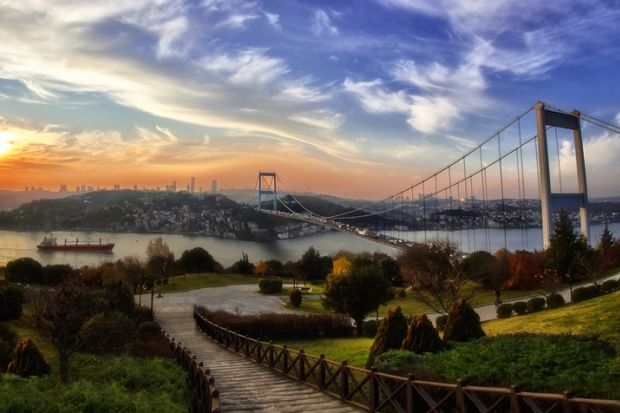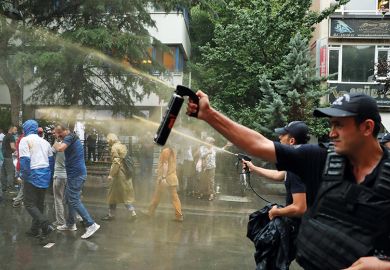“Quality” has recently become a magic word in Turkish higher education. Politicians, officials, academics, students and even the man in the street are concerned about it. Increasing numbers of academic articles and theses are being published about it. Universities work with international quality assurance bodies and proudly advertise accreditation on their websites.
One reason for this explosion of interest is massification. Ever since it came to power in 2002, President Recep Tayyip Erdoğan’s Justice and Development Party has made intensive efforts to expand higher education. It directly established new public universities and also encouraged independent foundations to establish their own, with the result that the number of public universities has shot up from 53 to 129 and the number of foundation universities has climbed from 23 to 77 in the past 17 years, according to statistics from government agency the Council of Higher Education (CoHE).
Hence, access is no longer a critical issue. The total number of university students has risen from 1.8 million to more than 7.5 million, with 3.9 million of them in formal education programmes and the rest in open programmes. Statistics from the Measuring, Selection and Placement Center (OSYM), the university admissions body, indicate that 2.3 million candidates took its multiple-choice entrance exam in the summer of 2018, and almost 1.4 million of them started a higher education programme in the autumn.
This expansion pleased all segments of Turkish society for a while. It meant more places for students, more positions for academics, more educated workers for employers and propaganda for the governing party. In an address in February, Erdoğan recounted Angela Merkel’s surprise when he proudly told her that there were now almost 8 million university students in Turkey – compared with (according to her) only about 3 million in Germany.
However, the honeymoon did not last long. Massification has not delivered the anticipated improvements in national productivity, while educated unemployment has shot up: it was recently reported that graduate unemployment has climbed above 1 million, fuelling a common perception that Turkish universities churn out too many low-quality graduates. And in the past five years, more than a million students have dropped out or suspended their registration: a possible sign that trust in higher education is decreasing.
Even Erdoğan has admitted recently that there is a problem. In his academic inaugural address to university administrators last autumn, he said that his government had achieved quantitative successes in higher education but had been unable to raise its quality. He asked administrators and academics to do more to ensure that Turkish institutions appear near the top of world university rankings.
The CoHE has not been unmindful of quality. In 2015, it established the Higher Education Quality Council (YÖKAK), whose 13 members from universities and other government units are charged primarily with conducting detailed quality assessments of universities, including campus visits. But quality cannot be improved overnight, and many challenges remain to be overcome.
One is that teaching is considered more important than research in Turkey. This means that academics are kept busy teaching large numbers of large classes, which prevents them from focusing on academic production. The problem is exacerbated by recent budget restrictions, which have limited the number of academic positions becoming available and discouraged young academics hoping to start their careers.
Turkish universities’ sole dependence on their limited governmental grants also makes it quite difficult for them to fund many research projects. Moreover, they lack the international scholars who typically make significant contributions to research and development in their host countries: international academics make up just 2 per cent of academics in Turkey.
It will not be easy to systematically drive through national quality improvement from Ankara, given Turkish universities’ autonomy and varying institutional cultures. The road ahead is likely to be long, requiring perseverance, funding and the collaboration of different stakeholders. But at least Turkey has begun along it. And if the country can get to the end and match quantity with quality, it will be a higher education player to be reckoned with.
Hakan Ergin is a postdoctoral scholar at the Center for International Higher Education, Boston College. He has a PhD from Boğaziçi University, Istanbul.
POSTSCRIPT:
Print headline: Turkey is on a quality quest
Register to continue
Why register?
- Registration is free and only takes a moment
- Once registered, you can read 3 articles a month
- Sign up for our newsletter
Subscribe
Or subscribe for unlimited access to:
- Unlimited access to news, views, insights & reviews
- Digital editions
- Digital access to THE’s university and college rankings analysis
Already registered or a current subscriber?








